East Tennessee Behavioral Health offers an intensive outpatient program (IOP) for adults who have mental health and co-occurring disorders, which includes psychiatric diagnoses and co-occurring substance use disorders. Patients who participate in our IOP receive evidence-based care that can help them understand their diagnosis, manage their symptoms, and live a fulfilling, satisfying life.
IOP Overview
East Tennessee Behavioral Health provides an intensive outpatient program for adults age 18 and older. Our IOP offers you a chance to work, attend school, or participate in other daily living activities when programming is not in session.
You can enter our IOP directly or as a step-down after completing a higher level of care, such as our partial hospitalization program (PHP) or inpatient program.
Our IOP meets three to five days each week for a minimum of three hours per day. Each patient’s length of stay in the program depends on their presenting symptoms and an ongoing assessment of their progress by our staff of clinical professionals.
Conditions we commonly treat in our IOP include:
- Bipolar disorder
- Anxiety
- Depression
- Posttraumatic stress disorder (PTSD)
- Co-occurring substance use disorders
Features & Services
In East Tennessee Behavioral Health’s intensive outpatient program, we use various therapeutic activities and evidence-based services to help you thrive during your time with us and long after programming ends.
We weave elements of cognitive behavioral therapy (CBT) and dialectical behavior therapy (DBT) into our programming, utilizing the approach that works best for you depending on your individual needs and goals.
All participants in our IOP receive a personalized care plan, but there are some common elements to our program. We offer:
- Medication management services
- Individual therapy
- Family therapy
- Group therapy
Group therapy is the primary focus of our IOP. While participating in these daily sessions, you may attend psychoeducational and process groups, where topics include coping skills and healthy living. Each group is led by a licensed clinical social worker and the coordinator of our IOP.
We offer the option to join our IOP program virtually or in person to best fit your schedule.
Continuing Care
At East Tennessee Behavioral Health, we want to help you understand your diagnosis and develop skills that give you a more positive outlook on life.
But our IOP is just one step on your recovery journey. We want to make sure that we set you up to thrive in the days, weeks, and months to come.
From the time you enter our IOP, your primary therapist and multidisciplinary team will begin to plan for your eventual discharge. By using information from your initial assessment and the progress you make throughout your time with us, we will be able to create a detailed aftercare plan that sets you up for continued success.
When your time in our IOP is over, we will contact outpatient providers on your behalf to discuss your progress and the best course for continuity of care. We’ll also provide you with resources for support groups, educational resources, and social support.
Admissions Process
When you decide to receive care for any mental health or co-occurring substance use disorder, the last thing you want to encounter is a complicated admissions process. At East Tennessee Behavioral Health, we streamline our procedures to get you into our programming as quickly as possible when you’re ready.
We accept referrals from a variety of community resources, and prospective patients may reach out to us anytime, 24/7. One of our intake clinicians can help you schedule an assessment, during which we will:
- Gather demographic information, clinical history, and insurance and payment information
- Gain an understanding of your current needs
- Determine if our IOP is the right level of care for you or recommend alternative programming
From there, we’ll work with your insurance provider to verify your benefits. Though we treat substance use disorders, insurance will only cover care for an addiction as a primary diagnosis if the patient is struggling with an opioid addiction. If a patient has any other substance use disorder, it can only be treated as a co-occurring diagnosis.
This content was written on behalf of and reviewed by the clinical staff at East Tennessee Behavioral Health.















